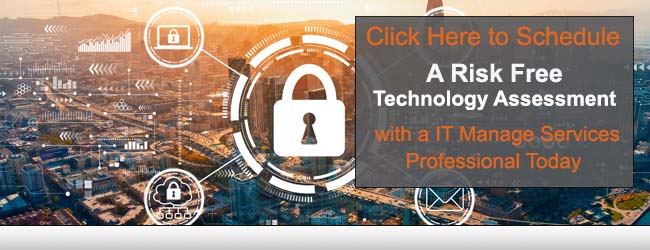What Does Cybersecurity Month Mean to You?
Cybersecurity Month, often referred to as National Cybersecurity Awareness Month (NCSAM), is an annual campaign in the United States and other countries that takes place in the month of October. The primary goal of Cybersecurity Month is to raise awareness about the importance of cybersecurity and promote good cybersecurity practices among individuals, businesses, and organizations.
During Cybersecurity Month, government agencies, non-profit organizations, and private sector companies collaborate to provide resources, events, and educational materials aimed at helping you protect yourself, your business, and your digital assets from cyber threats.
These initiatives typically focus on a wide range of cybersecurity topics, including:
Online safety:
Promoting safe online behaviors, protecting personal information, and avoiding common cyber threats like phishing and malware.
Cybersecurity for businesses:
Providing guidance to organizations on how to safeguard their systems, data, and customer information, as well as the importance of creating a cybersecurity culture within the workplace.
Critical infrastructure protection:
Highlighting the significance of securing vital infrastructure, such as energy grids, transportation systems, and healthcare facilities, against cyber threats.
Emerging technologies:
Addressing the cybersecurity challenges and best practices associated with new technologies like the Internet of Things (IoT), cloud computing, and artificial intelligence.
Promoting careers in cybersecurity:
Encouraging individuals to consider careers in the field of cybersecurity to help address the growing demand for cybersecurity professionals.
Cybersecurity Month serves as a reminder that cybersecurity is a shared responsibility, and it encourages people of all ages and backgrounds to take steps to protect themselves and their digital presence. It also emphasizes the need for ongoing education and awareness as cyber threats continue to evolve and become more sophisticated.

How has the Cybersecurity Threat Evolved Since 2010
Cybersecurity has evolved significantly since 2010 in response to the changing threat landscape, technological advancements, and the growing reliance on digital technology (think of all those connected devices!). Cybersecurity has been evolving too!
- Increased Awareness: Cybersecurity has gained more attention and awareness from individuals, businesses, and governments. High-profile data breaches and cyberattacks have contributed to a greater understanding of the potential risks.
- Advanced Threats: Cyber threats have become more sophisticated. Advanced persistent threats (APTs), ransomware, and nation-state-sponsored attacks have become more prevalent and complex.
- Mobile and IoT Security: The proliferation of mobile devices and Internet of Things (IoT) devices has expanded the attack surface. Cybersecurity has had to adapt to secure these devices and the data they generate.
- Cloud Security: The shift to cloud computing has necessitated a focus on cloud security. Organizations have had to develop strategies for securing data and applications in the cloud.
- AI and Machine Learning: Both cyber attackers and defenders have embraced artificial intelligence (AI) and machine learning to automate and enhance their operations. AI is used to detect and respond to threats more effectively.
- Zero Trust Security: The traditional perimeter-based security model has been challenged. Zero Trust security, which assumes that threats may exist both inside and outside the network, has gained prominence.
- Privacy Regulations: Data protection regulations like the European Union’s General Data Protection Regulation (GDPR) and the California Consumer Privacy Act (CCPA) have introduced legal requirements for data security and privacy.
- Cybersecurity Workforce: There is a growing demand for cybersecurity professionals. More educational programs and certifications are available to train the next generation of experts.
- Supply Chain Security: Organizations have become more aware of the risks associated with their supply chains. Supply chain attacks, such as the SolarWinds breach, have highlighted the importance of securing the entire ecosystem.
- Threat Intelligence Sharing: Increased collaboration and information sharing among organizations, industries, and governments have improved collective defenses against cyber threats.
- Security Automation: Automation and orchestration have become essential for rapidly responding to threats. Security tools and solutions increasingly incorporate automation to detect and mitigate threats.
- Multi-Factor Authentication (MFA): MFA has become a standard security practice to enhance identity and access management.
- User Training: User awareness and training programs have become more common to combat social engineering attacks, like phishing.
- Cyber Insurance: The growth of cyber insurance has given organizations an additional tool to mitigate the financial risks associated with cyber incidents.
- Blockchain and Cryptocurrency Security: The rise of blockchain technology and cryptocurrencies has introduced new security challenges and opportunities for innovation.
Overall, the cybersecurity landscape has evolved in response to the changing nature of cyber threats, the adoption of new technologies, and the realization that cybersecurity is an ongoing and integral part of our digital lives. It is expected to continue evolving as new technologies and threats emerge, especially during times of heightened national security concerns.

Are we safe here in Colorado?
When it comes to your Colorado business, you might wonder why a third-party Managed Services Provider (MSP) is so crucial. Well, let’s dive into the reasons why these service providers are indispensable for businesses like yours in the Centennial State.
Expertise and Specialization:
MSPs (like the ABT MITS team) are like the seasoned mountain guides of the business world. They specialize in delivering services such as IT, cybersecurity, cloud management, and network infrastructure. By teaming up with an MSP like ours, you get access to their deep well of knowledge and industry best practices that may not be readily available in your in-house team.
Cost Savings:
Running a business can be a bit like managing a ski resort – it comes with its own set of expenses. Hiring, training, and retaining in-house experts, not to mention the costs of infrastructure and equipment, can add up. MSPs offer cost-effective solutions, and they can use their expertise and resources efficiently to save you money.
Focus on Core Competencies:
Just like how you’d rather be known for your signature Colorado craft brews than IT troubleshooting, outsourcing non-core functions to an MSP lets you concentrate on your primary mission and core competencies. This can lead to improved efficiency and productivity for your business.
Scalability:
Colorado businesses often experience growth spurts, and your technology needs might fluctuate. MSPs are like adjustable snowshoes for your IT services – they can adapt to meet your changing requirements. Whether you’re a startup on the rise or an established business, scalability is a key advantage.
24/7 Support:
In the Rockies, you know the value of having a reliable compass. Many MSPs offer round-the-clock support and monitoring. This ensures that your critical systems and services remain operational, reducing downtime and potential revenue losses – just like ensuring you’re never stranded on a mountain.
Security and Compliance:
With the cybersecurity landscape getting as complex as the I-70 on a powder day, businesses need robust security solutions. MSPs often specialize in providing such solutions and ensuring compliance with industry standards and regulations. This minimizes the risk of data breaches and potential fines – important considerations for businesses in Colorado and beyond.
Access to Advanced Technology:
Just as you’d like to enjoy the latest gear when hitting the slopes, businesses need access to cutting-edge technology. MSPs invest in the latest tools and tech. By partnering with ABTs Managed IT Services, you get to enjoy the benefits of these innovations without the upfront costs and complexities of managing them in-house.
Risk Management:
Like the weather in Colorado, operational risks can be unpredictable. MSPs often share some of the operational risks associated with the services they provide. This helps your business mitigate potential risks and liabilities.
Disaster Recovery and Business Continuity:
Colorado businesses understand the importance of being prepared for unexpected events, much like how you prepare for sudden snowstorms. Many MSPs offer disaster recovery and business continuity services, ensuring that your business can bounce back quickly from natural disasters, cyberattacks, or system failures.
Faster Deployment and Implementation:
Whether you’re conquering a challenging trail or implementing new technologies, speed matters. MSPs have the expertise and experience to deploy solutions swiftly and efficiently, reducing the time it takes to roll out new technologies and services for your business.
Vendor Management:
Managing multiple technology vendors can be as tricky as navigating the mountain roads. MSPs simplify this process by acting as a single point of contact for all technology-related matters, making it easier for you to manage your tech ecosystem.
Quality of Service:
In Colorado, you want to be sure you’re skiing on the best slopes, and in business, you want the best service. MSPs often provide Service Level Agreements (SLAs) that define the level of service quality and performance standards. This gives you peace of mind about the reliability of your IT systems.
Customization:
Just as Colorado’s landscape varies from region to region, businesses have unique needs. MSPs can customize their services to fit your specific requirements, providing a personalized approach to technology and services.
Third-party Managed Services Providers offer businesses in Colorado and beyond access to specialized expertise, cost savings, scalability, and the ability to focus on their core operations. They can be a valuable asset in improving efficiency, reducing risks, and enhancing the overall performance and competitiveness of your business. So, consider teaming up with an MSP, and like a seasoned Colorado skier, navigate the complex tech slopes with confidence!
